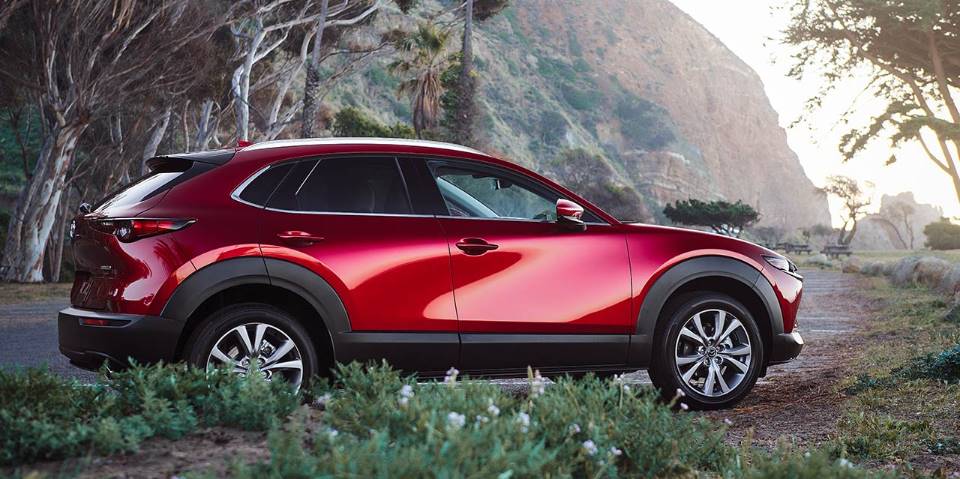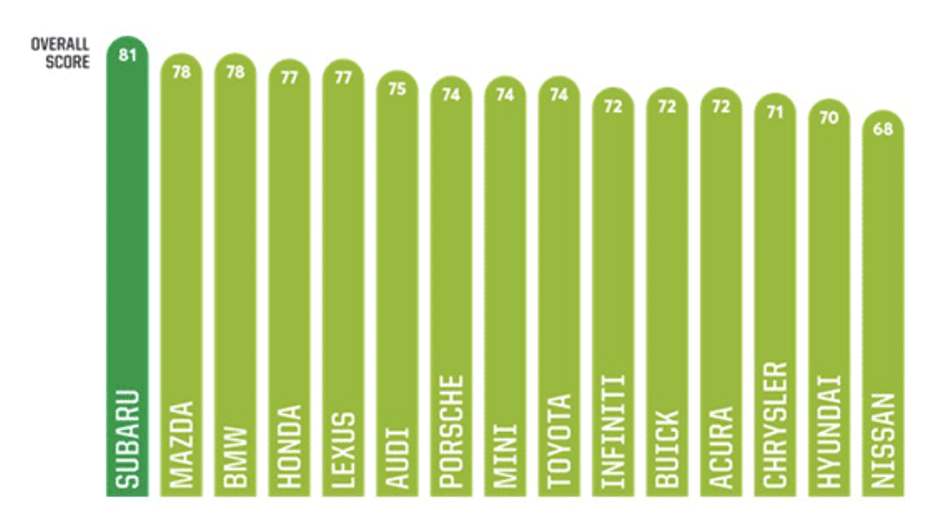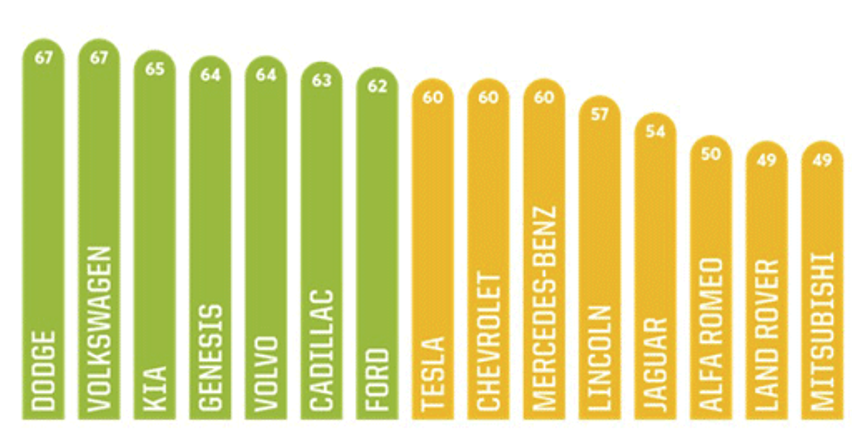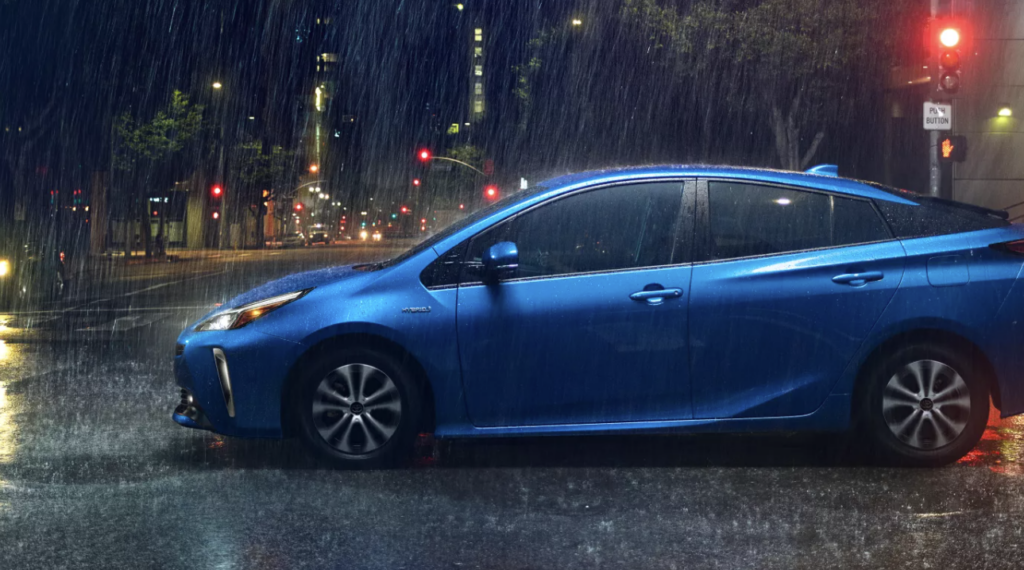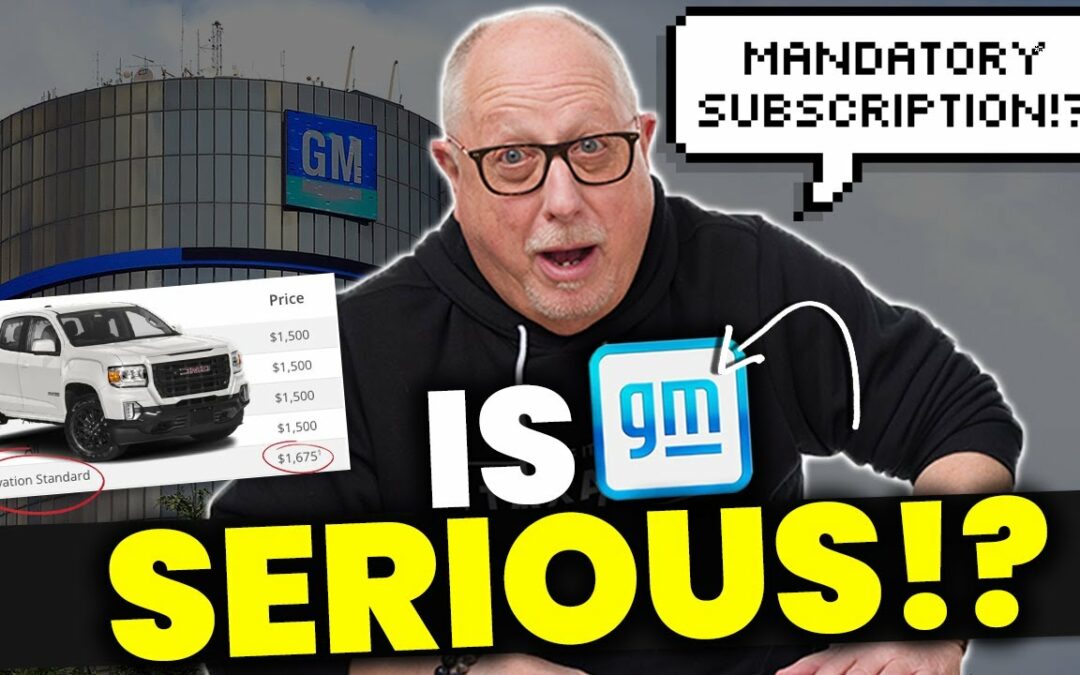
Automakers Want You to “Subscribe” to Features in Your Car. What’s Next?
If you’re in the market for a GMC Sierra, Buick Enclave, or any of the two brand’s other models, we have some disappointing news for you. At what most would agree is the absolute worst time for automakers to pack more profits into car sales, Buick and GMC are forcing what they consider to be ‘value added’ subscriptions, and it’s not optional. The news from GM is just the latest example of automakers introducing what they call ‘software-derived revenue’, and executives are not being shy with their plans to introduce more of the same in the near future.
Not a Fan of OnStar? Too Bad, Says GM
Would you consider forcing customers to pay for an add-on they may not want to be anti-consumer, or is that just how the world works these days? It’s one thing to sell a new vehicle with a trial subscription, but it’s another to add a thousand dollars to the price tag for a software subscription the customer may never use.
As of July, General Motors is adding between $905 and $1,675 to Buick and GMC price tags for a 3-year subscription to GM’s OnStar Connected Services. To the uninitiated, this may sound like yet another add-on. But the thing is, GM says it’s not optional. No matter whether you want a 36 month subscription to OnStar or not, GMC and Buick customers will have to pay for it. The only model to receive the full suite of software free of additional charge is the $100,000-plus GMC Hummer EV.
A GM spokesperson confirmed the move to GM Authority, saying, “This offering provides our owners with a full suite of OnStar and Connected Services for three years, providing them with more time to enjoy services such as remote key fob, Wi-Fi data and OnStar safety services. By including this plan as standard equipment on the vehicle, it provides more customer value and a more seamless onboarding experience.”
Manufacturer incentives are already at record lows, and new car inventory is increasing at a snail’s pace. How could you push back against these new forced add-ons? Considering that GMC and Buick’s OnStar ‘Connected Services’ mandatory subscription is tacked on by the automakers themselves, dealers are not likely to negotiate on it. What we can hope for is the return of other kinds of incentives and deals. With more and more signs of the car price bubble beginning to burst, it’s too early to lose hope on that front.
It’s likely that GM will lose some customers for life as a result of this decision. Look at some of the comments we received on our YouTube video covering this topic:
Consumers are fed up, and with good reason. General Motors isn’t the only automaker trying to make car subscriptions mainstream; Volkswagen, Stellantis, Ford, and BMW all have their eyes on increasing software and subscription revenues.
BMW wants you to subscribe to your heated seats for $18/mo
Welcome to microtransaction hell. BMW wants you to subscribe to your heated seats in your new 3 series:
- Monthly fee: $18
- Annual fee: $180
The car will come with all the necessary components, but payment is needed to remove a software block. How wild is that?
GM is taking the tact of “subscriptions are mandatory,” while BMW is shipping cars to customers with all of the necessary hardware to offer functionality, yet imposing a software “paywall”.
So far BMW has not launched this program in the United States, however it’s likely they will at some point. More on this from The Verge.
Volkswagen, Stellantis and Ford Pursuing Subscriptions and Software Revenues
GM surely isn’t the first to say it or even do it, but this is the boldest forced subscription we’ve seen from a legacy automaker to date. For a decade, Tesla has been offering acceleration boosts, more range, and autonomous driving features as software ‘upgrades’ that controversially don’t get passed on to future owners. Clearly, many buyers don’t mind, as Tesla has dominated EV and overall luxury sales.
Is this yet another example of legacy OEMs going after Tesla, or is it a ploy to introduce new revenue streams for the sake of simply making more money, and charging more for vehicles? Fortunately, there’s no need to speculate, because multiple automaker executives have already shared their intentions with the public.
Stellantis Plans to Bring Subscriptions to Vehicles
Not looking forward to paying a monthly subscription for conveniences like remote start or advanced cruise control? Me either. Automotive News Europe recently reported that Stellantis is launching a $23 billion software push to get into the auto subscription business.
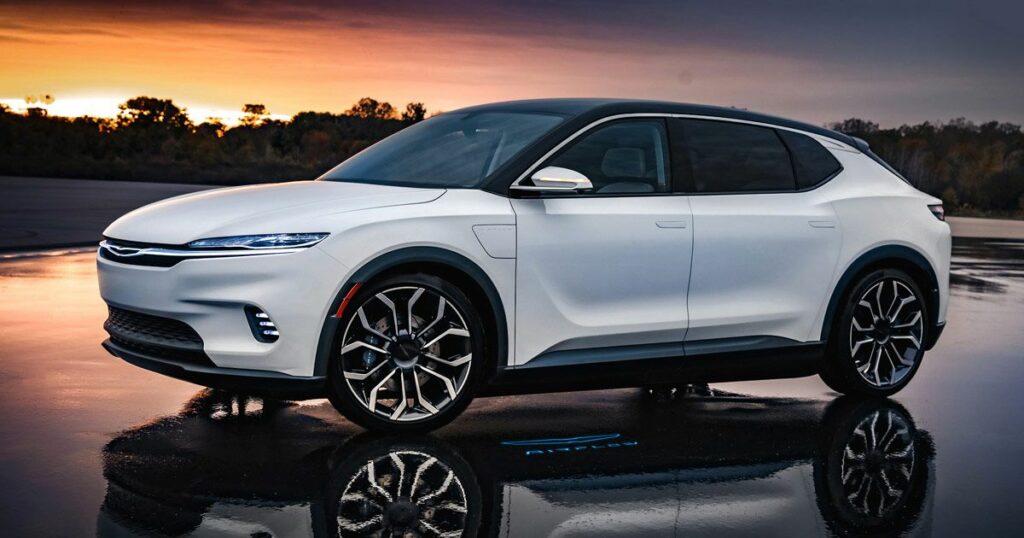
Just how big of a business will auto subscription services become? Stellantis, the sixth-largest automaker in the world, says it plans to make $4.5 billion in annual revenue from software subscriptions in the near future. How soon? Mamatha Chamarthi, the head of Stellantis’ software business, says the company can reach their goal by 2026.
Stellantis CEO Carlos Tavares chimed in too. He’s confident that Stellantis’ software business will generate high margins more like those at tech companies than the traditional auto business. He added that in the company’s view, software-based services and subscriptions will help vehicles last longer and have higher resale values. Do you buy that?
Ford Wants To Be a Tech Company
The Blue Oval is getting into pay-to-play automotive services, too. The Ford Mustang Mach-E and F-150 Lightning electric vehicles are Ford’s first mass-produced vehicles to be fully-capable of over-the-air updates, and now Ford plans to turn their latest innovation into new revenue streams.
Wes Sherwood of Ford Communications recently told Pickup Truck Talk that Ford knows the value of what they’re bringing to their models. “These subscription services are big business for automakers – to the tune of billions. We see connected vehicle services as a huge opportunity, which is why we are transforming Ford into a software-led company and, for customers, ‘always-on’ ownership experiences where before our relationships were periodic (sales and some service). In fact, we see this market growing to $20 billion by 2030.”
Volkswagen’s Pay-As-You-Go Autonomous Driving
If you want to be a beta tester for Tesla’s ‘Full Self-Driving”, you’ll have to add $12,000 to the price of that shiny new EV. However, Volkswagen, one of Tesla’s most admiring competitors, envisions a subscription-based payment plan for autonomous driving capabilities.
Volkswagen Group’s software unit Cariad believes pay-as-you-go autonomous driving is one way the automaker can monetize future software developments.
“There is a new business model already out there — a subscription model, or function-on-demand — where you can drive autonomously if you want, for the next 50 miles. We would support that, “ Cariad CEO Dirk Hilgenberg told Bloomberg.
Hilgenberg said it was possible to see that the service would allow the automaker the opportunity to offer other services to consumers who are freed from driving the vehicle.
“You have to make sure to have what we call a digital services platform that lets the outside world in — Google, Apple, Amazon — where you can bring your accounts to stream and be entertained, or where you can work with office products, do a videoconference or prepare yourself for the next meeting. This is the product we want to sell. The product is our platform,” he said.









